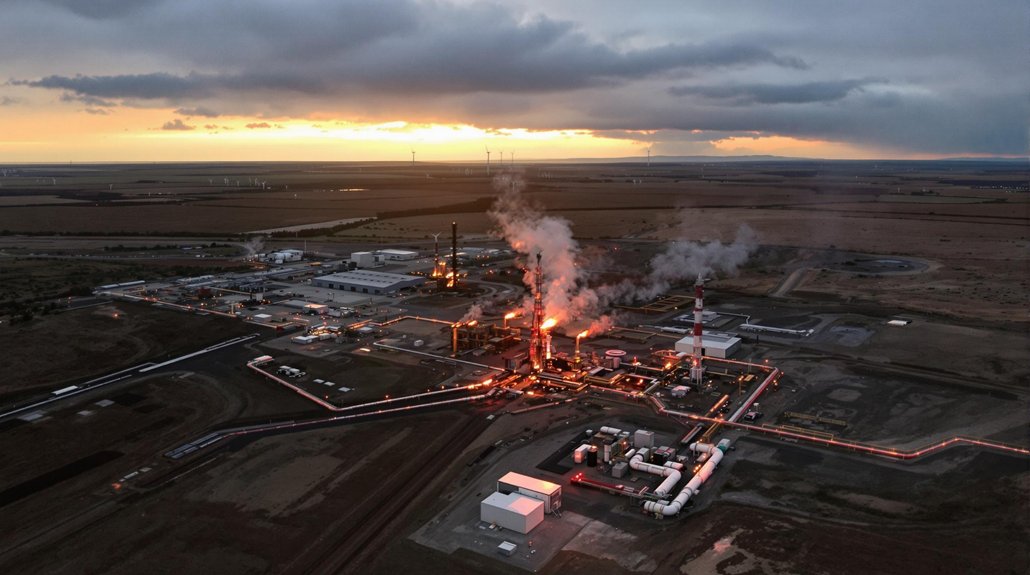Republican lawmakers are pushing to expand offshore drilling across 625 million acres of federal waters. The initiative aims to boost energy production but faces resistance from Florida Republicans and environmental groups. While supporters highlight economic benefits, critics point to risks like the Deepwater Horizon disaster. The U.S. already leads global oil production with many unused leases. This clash between energy interests and environmental concerns reveals deeper tensions beneath the surface.
Republican lawmakers are pushing to expand offshore oil and gas drilling following the Trump administration’s recent executive order to repeal Biden-era restrictions. The executive order aims to open 625 million acres of federal waters for oil and gas leasing, including areas in the Atlantic, Pacific, Alaska, and eastern Gulf of Mexico.
While many GOP lawmakers support the expansion, citing energy security and job creation, there’s notable opposition within Republican ranks. Florida Republicans have been particularly vocal against drilling off their state’s coast. Rep. Byron Donalds stated firmly, “Not off of Florida’s coast,” while Rep. Carlos Giménez also opposes drilling near Florida. Republican leaders are considering using budget reconciliation process to advance their drilling agenda despite internal opposition.
The GOP push for offshore drilling faces resistance from within, particularly Florida Republicans who firmly oppose exploration near their coastline.
The push comes despite the U.S. already being the world’s largest oil producer and leading gas exporter. Industry experts note that oil companies currently hold many unused leases on federal land, and market conditions, rather than policy changes, typically drive drilling decisions. Technological advancements have improved drilling safety and efficiency, but environmental groups remain skeptical about the adequacy of these improvements.
Environmental groups express serious concerns about the risks of offshore drilling. They point to disasters like the Deepwater Horizon spill and a 2015 California pipeline rupture that released 100,000 gallons of crude oil. These incidents highlight potential threats to marine ecosystems and coastal communities. Expanded drilling could significantly increase greenhouse gas emissions, as fossil fuels already account for 65% of global emissions.
Public opinion in coastal states often opposes offshore drilling expansion. In Florida, 64% of residents opposed offshore drilling in a 2019 poll, and the state passed a constitutional amendment against drilling in state waters in 2018. California has maintained a moratorium on new offshore drilling since 1969.
The administration’s efforts face significant legal hurdles. Biden’s withdrawal order may require Congressional action to overturn, and previous attempts to expand drilling were blocked by courts. Environmental groups are likely to challenge any changes to existing protections.
The Central and Western Gulf of Mexico currently account for about 15% of U.S. oil and gas production. Industry focus remains primarily on these areas rather than untapped regions. Analysts suggest the debate represents a broader struggle between energy development goals and environmental protection priorities.








